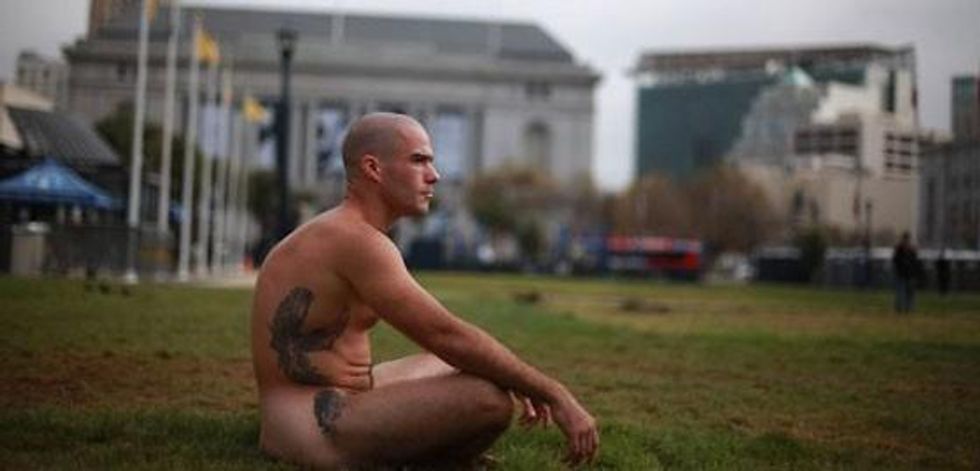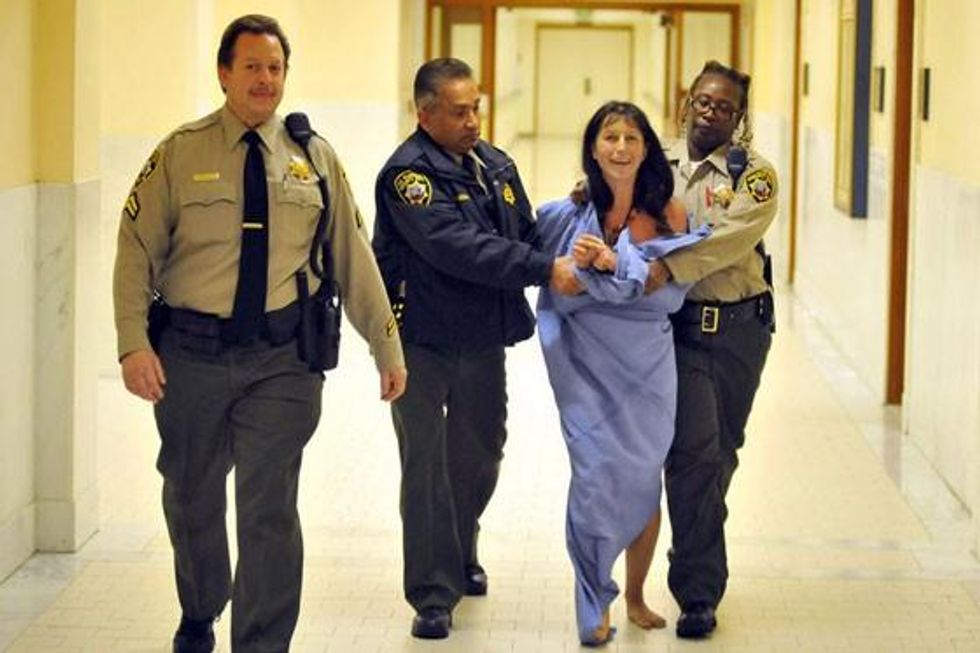The San Francisco Board of Supervisors voted 6-5 Tuesday night to enact a new ordinance that makes it illegal for anyone to "expose his or her genitals, perineum or anal region" in most public places, including streets, sidewalks and public transit.
Exemptions would be made, however, for nudists at permitted street fairs and parades, such as the annual Pride Parade and the Folsom Street Fair -- the annual BDSM and leather subculture street fair.
Aptly named Supervisor Scott Wiener said he proposed the ban in response to complaints about a group of men whose bare bodies are often on display in the city's Castro District. He said he felt compelled to act. "This legislation is really about genitals," Wiener said. "I'm not looking to get anyone arrested because they are showing a plumber's crack or wearing a bikini."
Other Supervisors argued against Weiner's anti-nudity law:
"But we do live in a time of limited resources and when it comes to what is the best and most effective way of using those limited resources, not that enforcing nudity laws is not important, but on the scale of how important it is relative to violent crime, I think that the focus should be violent crime," Supervisor David Campos said.
"When we start to surrender some of these basic rights city-wide, what's next? A lot of people think that that's cliche, but I do ask that question. Piercing? Tattooing? Or yellow hair? What?" Supervisor Christina Olague asked.
Boos and calls for Wiener's recall filled the board's chambers after Tuesday's vote. Gypsy Taub, a nudist activist who organized naked protests and marches in the weeks leading up to Tuesday's meeting, disrobed in protest before the sheriff's deputies escorted her from the room.
Under Wiener's proposal, a first offense would carry a maximum penalty of a $100 fine, but prosecutors would have authority to charge a third violation as a misdemeanor punishable by up to a $500 fine and a year in jail.
The law still must pass a final vote on December 4 and then Mayor Edwin Lee, who endorsed the law, must sign the bill for it to take effect in January.
A federal lawsuit seeking to block the ban has already been filed.
"Is the First Amendment more powerful and more important than the passions of an intolerant mob and the ambitions of one or more city supervisors?" asked attorney for the nudists Christina Diedoardo. "We would contend that it is and that is what our case is based upon."





